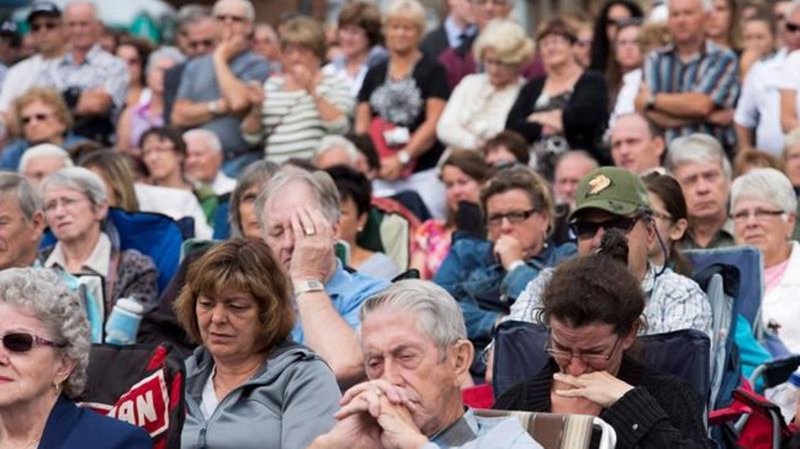
Series dramatizing Lac-Mégantic rail disaster divides opinion among residents
MONTREAL — A new television series based on the Lac-Mégantic rail disaster is dividing opinion in the Quebec town where it is set.
Citizens of Lac-Mégantic were given a chance to watch the first episode of “Mégantic” at a screening Monday, several days before the French-language series begins streaming on Quebecor’s Club Illico Thursday.
The eight-episode show comes months before the 10-year-anniversary of the July 6, 2013 disaster, when a runaway train hauling tanker cars loaded with crude oil derailed and exploded in the Quebec town of 6,000, claiming 47 lives and destroying a large part of the downtown area.
Daniel Pilon, a Lac-Mégantic resident, is among those who won’t be watching. In a phone interview, he said he’s uncomfortable seeing a production company “romanticizing” the tragedy.
